Last-Minute NYC Holiday Gift Guide 🎁
We’ve created a holiday gift guide with presents for the intrepid New Yorker that should arrive just in time—


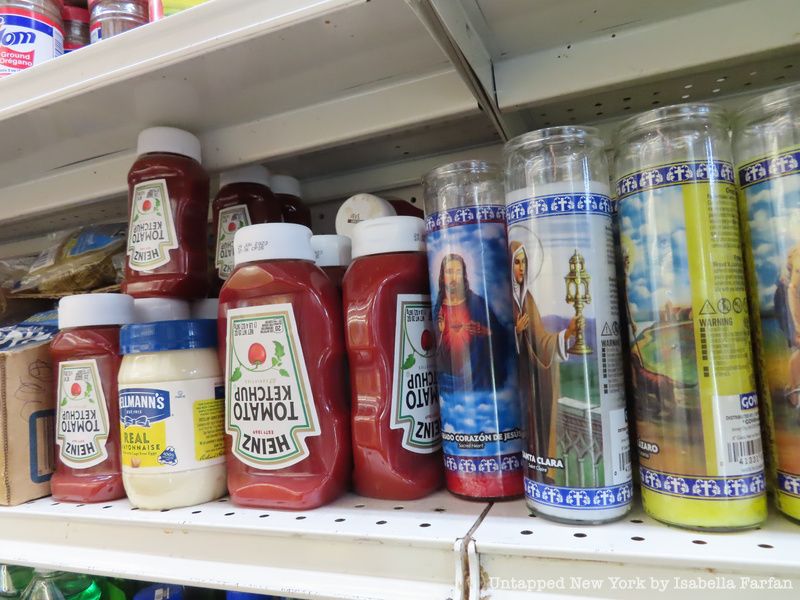
You probably won’t find Jesus next to ketchup and mayonnaise anywhere but a New York City bodega where the city’s character, diversity, and history are embodied in a physical space. Morning to night and night into morning, bodegas are open, offering an assortment of goods including New York’s famous Chopped Cheese sandwich, as well as the head-turning bodega cat.
The Spanish term “bodega,” dating back to the 1840s, originally referred to wine cellars, the hull of ships, and warehouses. Today in the United States, the word “bodega” refers to New York’s owner-operated convenience stores, often run by Yemeni and Latino immigrants. Francisco Marte, founder and president of the Bodega and Small Business Association, told Untapped New York that the bodega is an “extension of the home.”
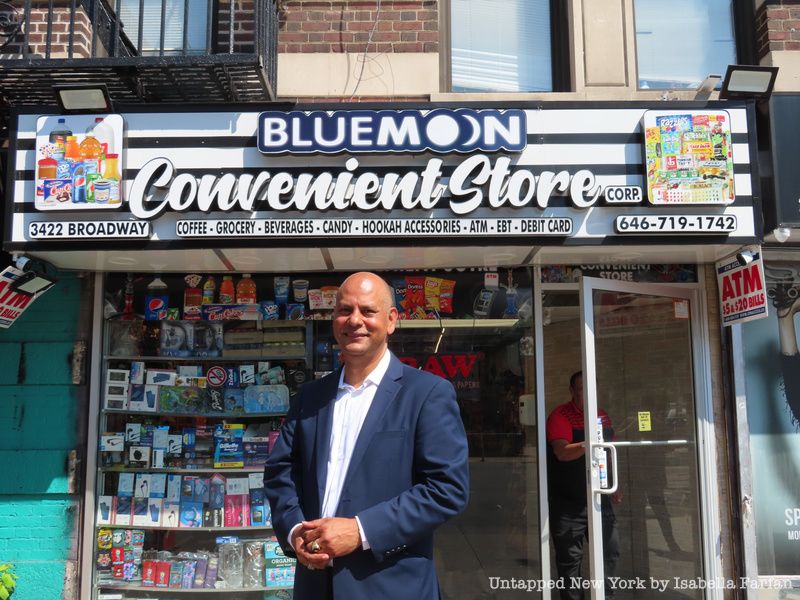
The distinction between a corner store and a bodega is difficult to explain. Marte, though, knows exactly what sets a bodega apart from any other store: If customers do not have money for food or diapers, the bodeguero will find a way for them to leave the store with those items; if a customer is stressed out, the bodeguero is there to listen; and if a customer is new to the city, a bodega is a place to create new relationships. That’s a bodega. Always there, always open, and always sympathetic to those in need.
The New York bodega, a dynamic embodiment of the American dream, has a complex history, traversing centuries and borders. Despite its status as an iconic and essential New York institution, bodegas have often faced violence when trying to accomplish their mission to serve the city. Here is the story of the New York City bodega’s past, present, and future.
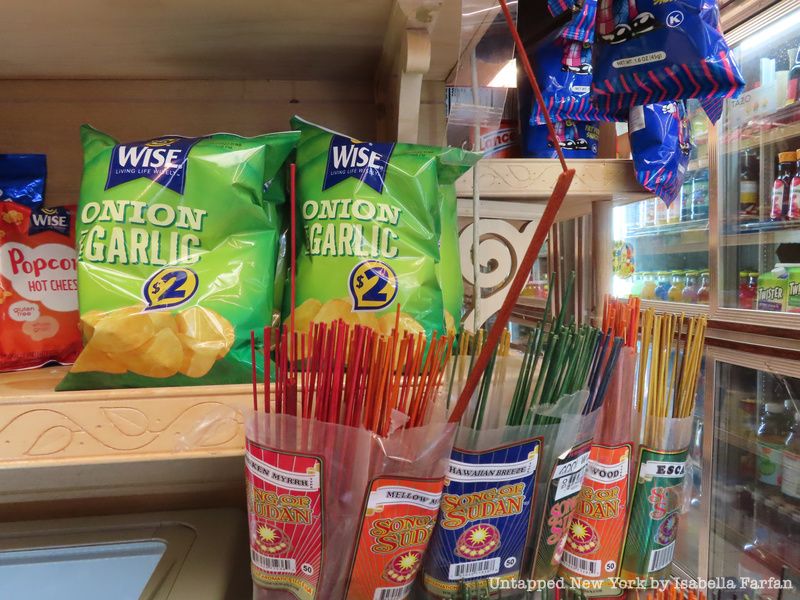
In 1902, The Sun reported that New York City would soon have its first bodega, which the paper described as a “barroom” originating from Spain. The demand for such a place arose as a result of American travel to Europe. The modern New York City bodega, though, is not a bar, nor is it European. The modern bodega tradition finds its origins in a mix of New York, Dominican, Puerto Rican, Yemeni, and other immigrant cultures. More recently, Immigrants from Egypt, Korea, the Philippines, and more have carried on the bodega tradition as well.
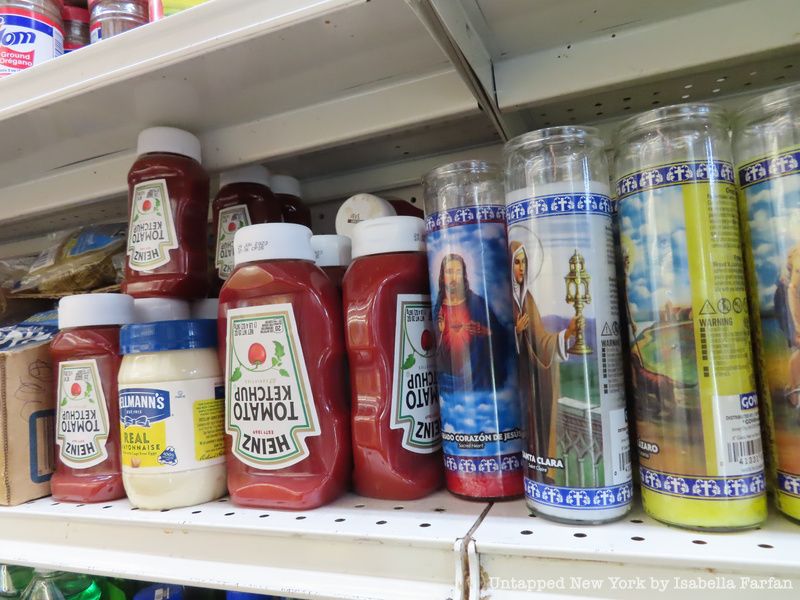
In 1917, the Jones Act gave Puerto Ricans American citizenship, facilitating the movement of Puerto Ricans to metropolitan areas in the continental United States. Some historians dubbed Puerto Rican settlements in New York City colonias. It was in these concentrated Puerto Rican immigrant communities that the bodega first emerged as the lunch joint for hungry factory workers.
Colonias, also known as barrios, developed wherever Puerto Rican immigrants could find work — typically the tobacco and rope manufacturing industries provided jobs in New York City. With the establishment of Puerto Rican communities in New York, the demand for local businesses, mostly food-centered establishments, rose in the city. According to some accounts, the first Puerto Rican bodegas emerged in the 1920s on Franklin Avenue in the Greenpoint section of Brooklyn where the American Manufacturing Company attracted a Puerto Rican population.
The second wave of Puerto Rican immigrants arrived in New York City after World War II. As part of “Operation Bootstrap,” an effort to catapult Puerto Rico’s industrial economy into a developed one, the United States and Puerto Rican governments set out on a number of ambitious economic projects to shift the country away from a predominantly agrarian economy. The plan attracted investments from the United States which brought more jobs to the island that required high-skilled labor in industries such as textiles and pharmaceuticals. By changing Puerto Rico’s employment landscape, Operation Bootstrap left many already poor Puerto Ricans displaced from stable agrarian jobs, and at the same time, rapid population growth on the island contributed to widespread unemployment.
So, Puerto Ricans once again left the island for the United States, solidifying their presence in New York City. There, they opened bodegas, which were reminiscent of home, selling goods also found in Puerto Rico. Owning a bodega was the ultimate American success story. From immigrant laborers to prosperous store owners, bodega ownership provided immigrants with upward mobility. Aurio Soto immigrated from Puerto Rico in 1951 and worked service jobs until he was able to start his own bodega in The Bronx in 1966. In 1984, Soto boasted to the Daily News that he was bringing in $15,000 a week.
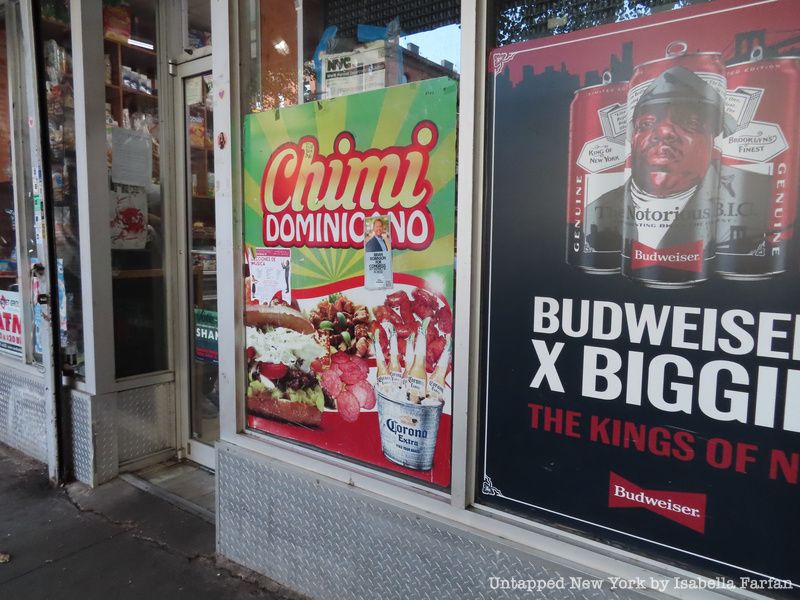
With the 1965 United States invasion of the Dominican Republic over potential communist concerns on the island, came a large emigration of Dominicans to the United States. The Immigration Act of 1965 simultaneously loosened immigration restrictions. By 2013, Dominicans surpassed Puerto Ricans as the largest Hispanic group in New York City.
In the Dominican Republic, colmados function much as bodegas do now in New York City. These tiny shops often provide household needs in impoverished Dominican communities, functioning as a community space where people sit outside to play dominoes, drink beer, and socialize. These scenes can be found today in around some New York City bodegas, like the one pictured above.
As the Dominican diaspora in New York City developed, so did the Dominican presence in New York’s small business scene where they often owned bodegas, cab companies, and beauty salons. Dominican bodegas were often founded thanks to the grouping of community resources, credit, and family labor that allowed for long hours. Dominican bodegueros stocked their shelves with imported products from the Dominican Republic like yucca and plantains.
According to some historical accounts, Dominicans purchased bodegas from aging Puerto Rican bodegueros who had more security in their futures than Dominicans because of their United States citizenship. These accounts noted that the children of New York’s original Puerto Rican bodegueros had more opportunities to go to college and were less willing to take over the family business. Thus, the tradition of bodega ownership gradually changed hands from Puerto Ricans to Dominicans.
Other accounts show that bodegas became largely Dominican-owned because they outcompeted Irish grocery stores in Washington Heights. What was once a predominantly Irish, Greek, and Jewish part of the city was becoming dominated by Latino immigrants. According to the Daily News in 1976 many Irish groceries stores shuttered along West 181st Street due to their inability to compete with bodegas in serving the growing Latino community.
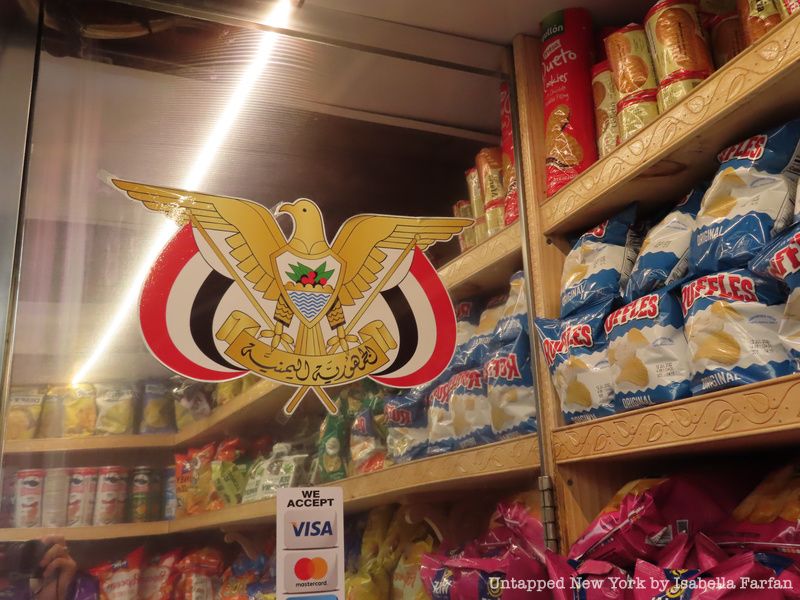
One of New York’s most quintessential bodega favorites is the chopped cheese sandwich, filled with beef, cheese, and various condiments. Though the sandwich finds its home in New York City, it likely has Yemeni origins. The sandwich originated in a Yemeni-managed bodega on 110th Street and 1st Avenue known as “Hajji’s.” Workers at this bodega speculated that the sandwich is an offshoot of an Arabic sandwich served alongside Yemeni bread. Although bodegas have Latino origins, the Yemeni American Merchant Association (YAMA) estimates that about half of New York City’s bodegas are owned by Yemeni Americans
From 1890 to 1920, the Ellis Island Census documented the first Yemenis that arrived on the island. Yet even by 1942, Yemeni-Americans could not become citizens. Ahmed Hassan, an immigrant from Yemen living in Detroit, was denied naturalization on account of his skin being too dark. Ozawa v. the United States (1922) set a precedent that Asian immigrants could not be naturalized due to the fact they were not perceived as white. Just a couple years later, the Immigration Act of 1924, barred immigrants who were ineligible for citizenship, including those who came from Asia and thus could not be naturalized due to their race.
The Immigration and Nationality Act of 1965 repealed these immigration limitations and allowed Yemeni immigrants to come to America during a period of civil unrest in Yemen. The majority of Yemeni immigrants in this wave were single men of working age, many going on to work in car factories or on farms. Youssef Mubarez, bodega owner and member of YAMA, told Untapped New York that his grandfather, a Yemeni immigrant, opened his first bodega 50 years ago. According to Mubarez, Yemenis have always been entrepreneurs.
“Even back in Yemen, they all owned businesses. So when they immigrated here, they worked on farms and quickly realized that they can make their own money by owning their own businesses,” Mubarez said. “Every Yemeni-American owns a bodega.”
Now, the Yemeni bodega community is realizing the power of uniting. In reaction to President Trump’s “Muslim ban,” which included a limitation of entry to the U.S. from Yemen, Yemeni-owned bodegas shut down and protested at Brooklyn City Hall in 2017. “Once we saw what kind of power we had, we decided we needed to start a merchant’s association to start advocating for ourselves and our rights,” Mubarez said. Now, YAMA provides support for Yemeni-Americans in the realms of education, advocacy, and business support.
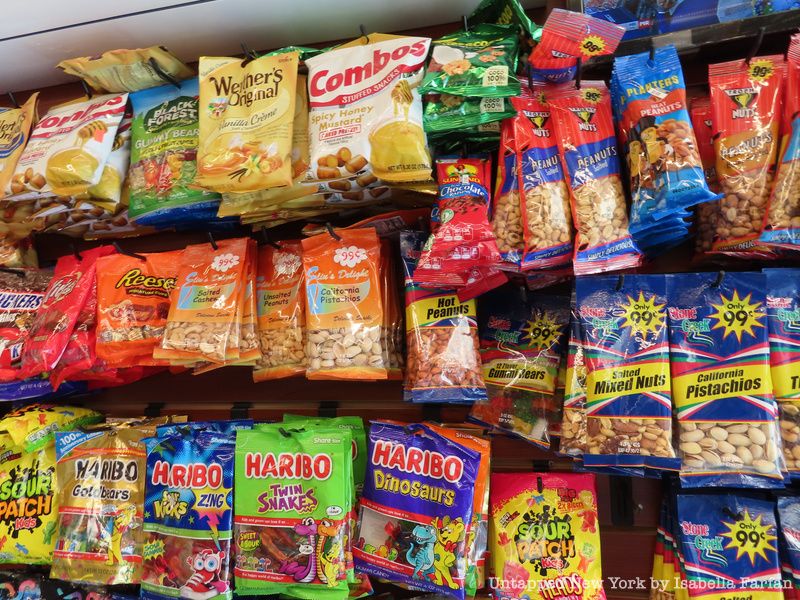
Regardless of a bodega’s ethnic origins, the small stores provide reprieve for the city’s food deserts, which are low-income areas in which the community has limited access to supermarkets and grocery stores with affordable, healthy food. Food insecurity and food deserts are intertwined in that in food deserts, individuals are unable to access affordable nutritious food and nutritional needs are not met. This is particularly relevant in The Bronx, which was dubbed the “hungriest borough” by Hunger Free America.
Yet in areas where supermarkets fail, bodegas meet some of the area’s food needs. Many bodegas also accept food-assistance services like EBT and SNAP. In the Crotona-Tremont neighborhood of the Bronx, for example, a report by the New York City Department of Health and Mental Hygiene concluded that bodegas outnumbered supermarkets with 88 bodegas and only 9 supermarkets.
Other neighborhoods where bodegas most significantly outnumber supermarkets are the Lower East Side, Chinatown, and East Harlem in Manhattan; Belmont, Tremont, Mott Haven, Melrose, Fordham, University Heights, Hunts Point, and Longwood in The Bronx; Jamaica and Hollis in Queens; and St. George and Stapleton in Staten Island. Brooklyn, by far, has the most neighborhoods with bodegas significantly outnumbering supermarkets with the largest ratio of bodegas to supermarkets at 45 to 1 in Sunset Park.
Bodegas are not only a lifeline for those living in food deserts, but at times, have become the lifelines for the rest of New York City. When New York City’s grocery stores ran out of hand sanitizer during the pandemic, New Yorkers turned to bodegas that still had fully stocked shelves.
New York’s bodegas have remained a cultural and survival cornerstone of New York City, but the day-to-day operation of bodegas is not without its dangerous challenges.
Francisco Marte, the founder and president of the Bodge and Small Business Association, is a bodeguero himself. He has owned bodegas since he acquired his first one at 19 years old, shortly after moving to New York from the Dominican Republic. He is now the founder and president of the Bodega and Small Business Group, a Hispanic coalition of small-business entrepreneurs. Marte’s group oversaw the distribution of over 150,000 masks during the pandemic and continues to tackle several issues facing bodegueros today, including public safety.
Marte’s pursuit of better public safety for bodegueros is a personal one. Marte has been shot three times. He showed Untapped New York two of his now-healed gunshot wounds: one under his eye and one on his right torso. The shootings happened during robberies and attempted robberies, though Marte does not dwell on his wounds. “I never stopped work,” he said.
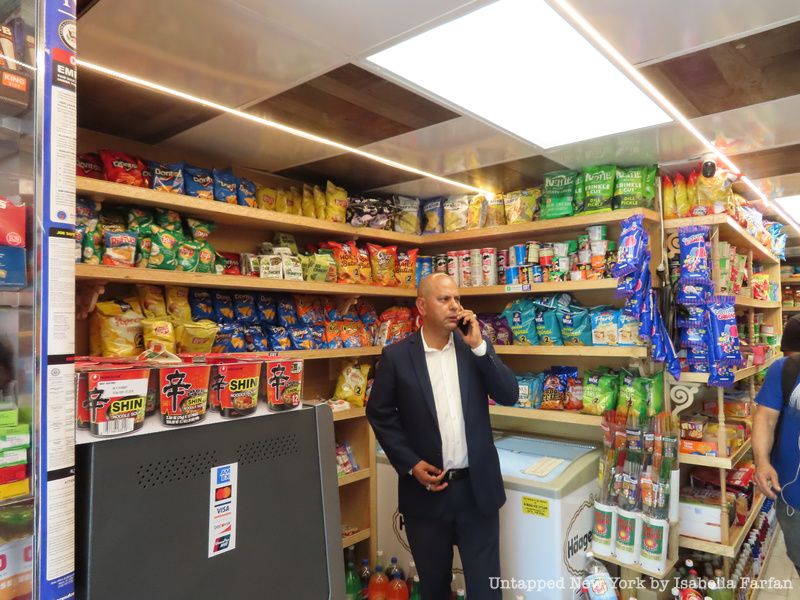
Marte’s wounds are indicative of a broader trend of violence toward bodegueros since the 1970s. In 1976, the Daily News reported two workers murdered in an attempted robbery at a family-run bodega located on Chauncey Street. One of the deceased was the stepson of owner Eugenio Aponte. After the incident, Aponte told the Daily News that he wanted to sell his bodega and return to Puerto Rico because he had enough of the violence. He had also been held at gunpoint the month before the incident. Since bodegas are often family-run, the violence perpetuated in bodegas can affect whole families all at once.
The next decade, a gang that specifically targeted Latinos formed at Rikers Island. The gang called the “Five Percenters,” went on a rampage wherein they were responsible for the deaths of four bodega workers and 20 bodega robberies over 18 days in Queens. In 1989, robbers shot and killed Dominican bodeguero Bienvenido Burgos in front of his brother and fianceé in his East Harlem bodega. Days earlier he had told friends that he would never let anyone steal from his store because of how hard he worked for his money.
The 1990s also marked a troubling decade for bodegueros with increased rates of robberies and hold-ups resulting in the death of many bodegueros and a sense of fear within the community. In 1995, the Daily News called working in a bodega the “deadliest job in America.” By July of that year, 60 bodegueros were victims of homicide. The violence tended toward Upper Manhattan, Queens, and Brooklyn.
In October 2021, Yemeni-American bodega worker Ahmed Almulaiki was stabbed outside the bodega he worked in by a frequent disruptive customer. The customer demanded store credit but was denied. The customer reacted in a violent rage, fatally stabbing Almulaiki and wounding his cousin who was also working the night shift. The suspect has since been apprehended and charged with murder.
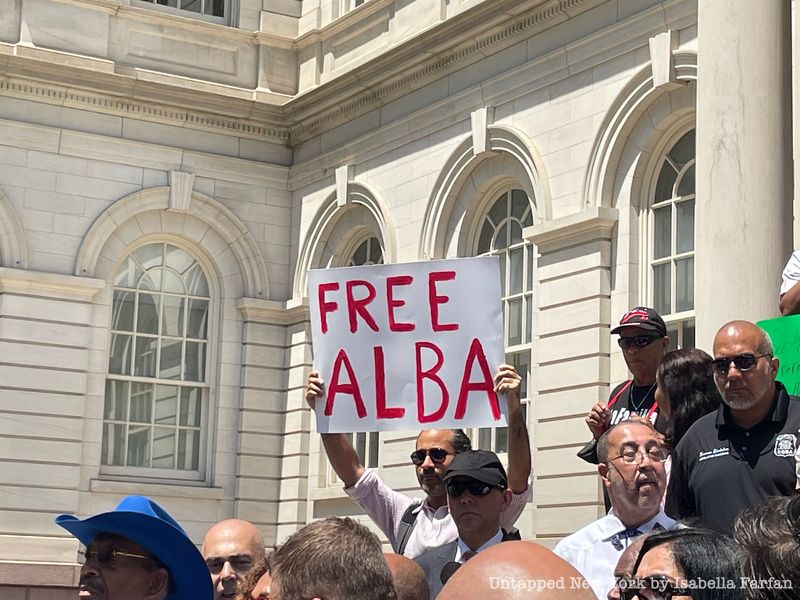
On July 1, 2022, at Bluemoon Convenient Store on West 139th Street and Broadway, employee Jose Alba was working the night shift. Alba, a 61-year-old Dominican national and Washington Heights resident, was violently accosted by the boyfriend of a woman whose card had been declined by the bodega’s machines. The boyfriend, Austin Simon, physically threatened Alba, pushing him behind the counter. In the video, Alba tries to leave from behind the counter, but as he does, Simon motions towards Alba’s neck. Alba had grabbed a box-cutting knife stashed behind the bodega counter and stabbed Simon several times while Simon’s girlfriend stabbed Alba in the arm. The entire event was captured by surveillance cameras. Simon died as a result of the altercation, and Alba was arrested and charged with second-degree murder.
Simon’s ex-wife maintains that his death was an “overkill,” especially as he left nine children behind. The altercation, she emphasizes, happened over a bag of chips and a declined credit card. He was also unarmed. Simon’s cousin, Candra Simon, told the Daily News that Simon did not deserve to die the way he did and that preexisting conflict between the Dominican and Black communities in Harlem was partly to blame for the outcome of the altercation. Bodega workers, his cousin claimed, sometimes disrespect members of the communities they work in.
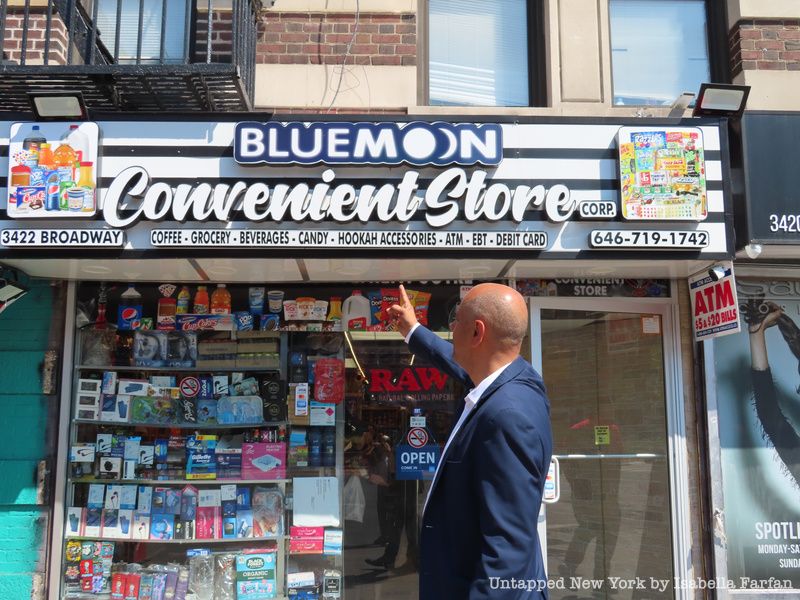
Still, the highly publicized video of the incident portrays a scenario that supporters of Alba identify as self-defense. Political leaders and community members alike have been quick to organize in defense of Alba, who is a father of three. Mayor Eric Adams issued a statement in support of Alba on WABC radio. In the same interview, Mayor Adams identified Austin Simon as the primary aggressor. Adams said Alba was “an innocent, hardworking New Yorker.” In response to the altercation, Congressman Adriano Espaillat issued a statement emphasizing the importance of protecting “essential workers who were on the frontline of the global pandemic.”
At a press conference at City Hall on the issue, the community demanded that the charges against Alba be dropped and cautioned that charging Alba with murder would only make way for future violence against New York’s bodega owners and employees. Cries for justicia rang through the crowd of angry congregants.
Reverend Ruben Diaz, former New York State Senator for South Bronx and former City Councilman, began the press conference with a prayer for the life that was lost, Austin Simon’s. The reverend told Untapped New York that he had never seen anything like what happened to Jose Alba. He was saddened by the loss of Austin Simon’s life, but still, he calls for Jose Alba’s freedom. “I pray to God and I am sorry… But, [accusing Jose Alba] of second-degree murder when the video showed it was self-defense is an injustice,” he said.
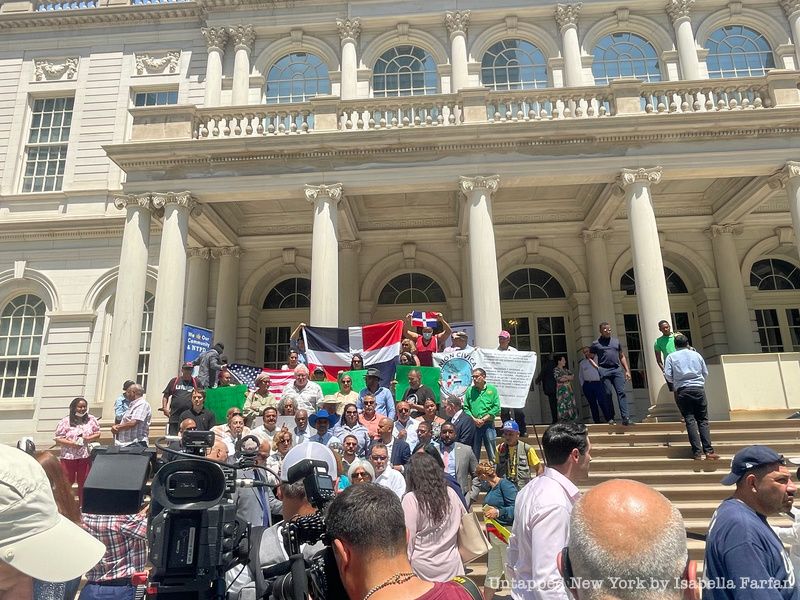
“Bodegas have been attacked for years,” Assemblymember Yudelka Tapia of New York’s 86th Assembly District told Untapped New York in an interview. She identified the root causes of violence in bodegas as a combination of bodegas being the places where people go when they are desperate, as well as the lack of security and protection within the stores themselves. “They don’t have money to pay for the protection of the business,” she said. Desperation, she indicated, can give way to violence, and bodegueros are not equipped to handle it.
Tapia thinks Alba acted in self-defense but disclaims that she is not a lawyer. “He’s a husband who has a family to protect and that’s why I am here,” Tapia said. Supporters of Alba are calling for District Attorney Alvin Bragg to drop the charges against Alba. The DA’s Office did not respond to Untapped New York’s request for comment in time for publication.
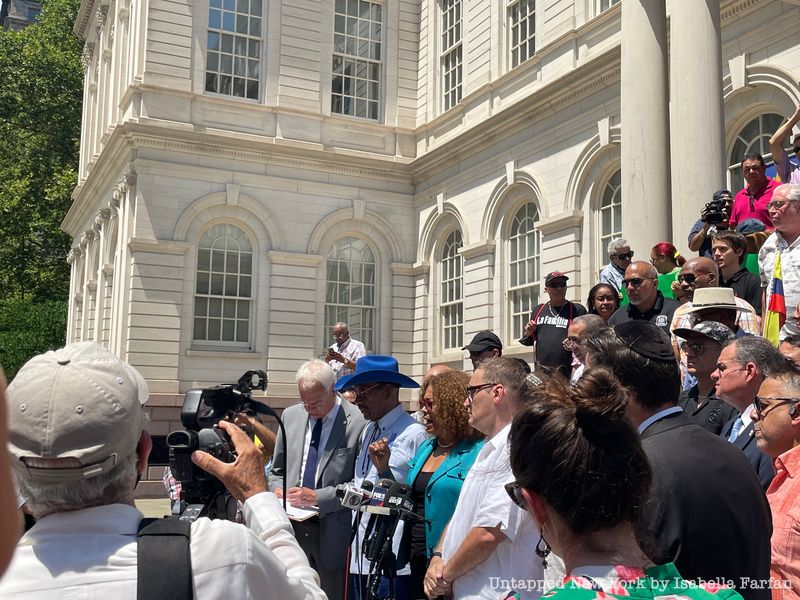
The mutual understanding of the dangers endured by all bodegueros compelled Marte to bail Jose Alba out of Rikers Island for $50,000 with his own money. When Untapped New York visited Bluemoon Convenient Store days after the attack, the man working the day shift could not say he felt safe or unsafe behind his counter. “We’re brave,” Marte said, nodding to the man. Moments before, a man had walked in asking for store credit to buy cigarettes. The man behind the counter said no, but the customer was insistent. After several increasingly desperate exchanges, the customer left.
While Alba faces second-degree murder charges, Marte is organizing meetings with the media, community events, and press conferences. His approach to preventing future violence is an initiative supporting the NYPD. He wants more communication between bodegueros, the communities they serve, and the police. Marte believes that a relationship between the communities around bodegas and the police can prevent future violence at the bodega.
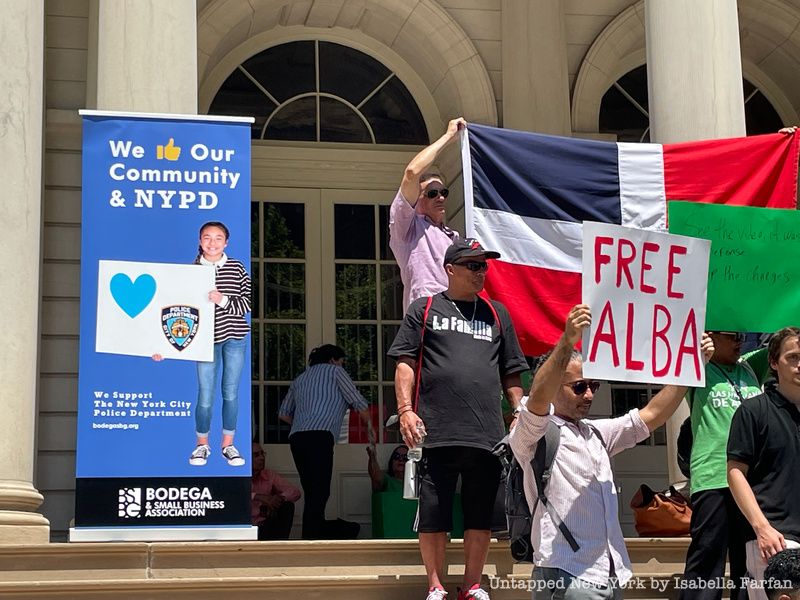
Not everyone, though, thinks that increased policing is a way to stop violence in the bodega. The Yemeni-American Merchant’s Association has a different approach: Mubarez said that the organization has been applying for grants for high-tech security cameras for bodegas. The organization filed for a $2 million grant in 2021 for “high-tech security systems,” but it was rejected. Mubarez points to the fact that cameras captured the altercation between Jose Alba and Austin Simon as the source of community outrage against Alba’s charges.
“My employees don’t feel safe. My family members don’t feel safe. They dedicated their lives to serving the community during the pandemic, and after that, they’re not being taken care of,” Mubarez told Untapped New York in an interview.
Despite the different approaches of the Yemeni American Merchant’s Association and the Bodega and Small Business Group, the two groups came together in solidarity for Jose Alba on City Hall Steps. The owners of the Bluemoon Convenience Store are Yemeni and Alba is Dominican, bringing together two distinct interest groups.
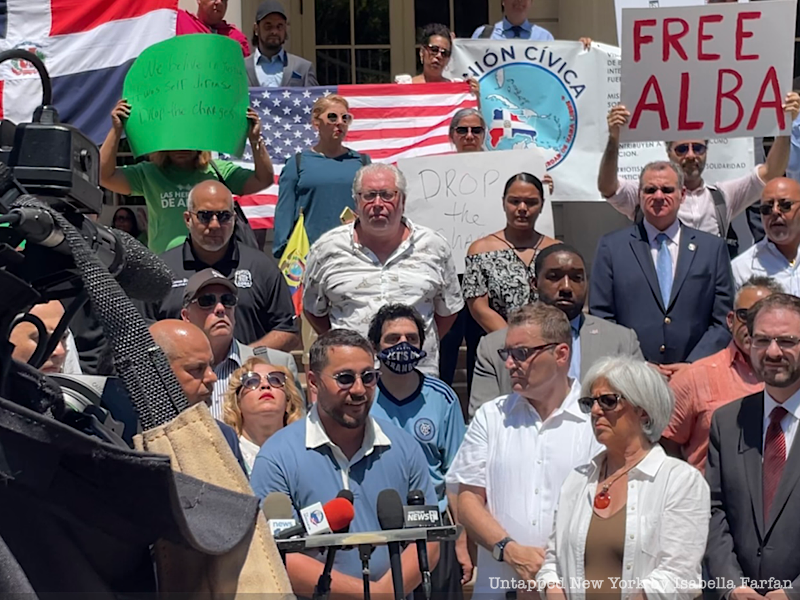
Perhaps the loudest person in the crowd was David Rem, a Queens resident and bodega supporter. Rem told Untapped New York that he felt outraged by the charges against Alba. He thinks that Alba should have been able to defend himself without facing charges.
New Yorkers are likely quick to defend the bodega because of the bodega’s unparalleled emphasis on humanity and connection. It is improbable that supermarkets will ever give out store credit and informal therapy as a neighborhood bodeguero does. The cultural products offered in bodegas also provide comfortable reminders of home for New York’s various immigrant populations.
Bodegueros are not just store clerks and managers but are friends, community leaders, and humanitarian workers. Despite serving such an important role, bodegas face a historical legacy of violence that threatens the livelihood of the people who work and shop in bodegas. Bodegueros, though, are not ready to go down without a fight. Behind their fight for survival are generations of hard work and resilience.
“We’re essential workers, we worked throughout the pandemic, and this is how we’re being repaid? It’s unacceptable. We need things to change,” Mubarez said. Similarly, Marte said, “I want to wake the people up and [let them] know we need public safety.”
Next, check out Cities 101: Are Bodega Cats Actually Legal?
Subscribe to our newsletter